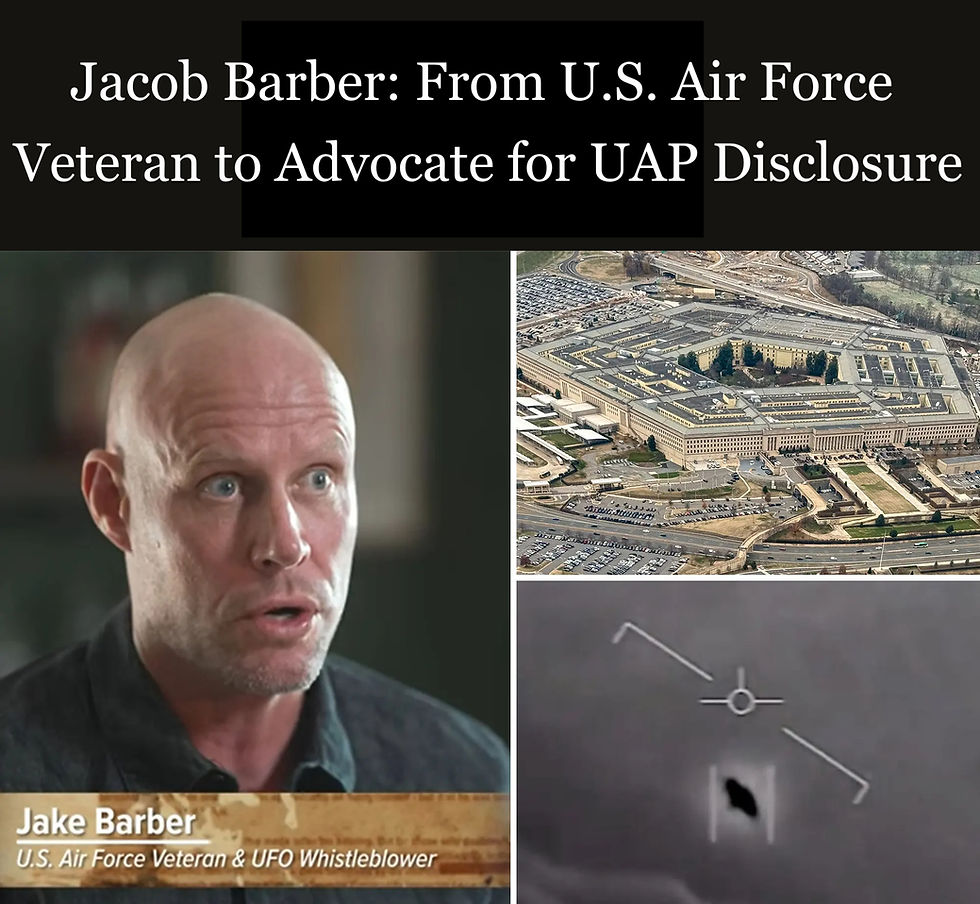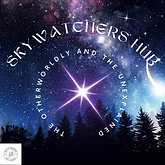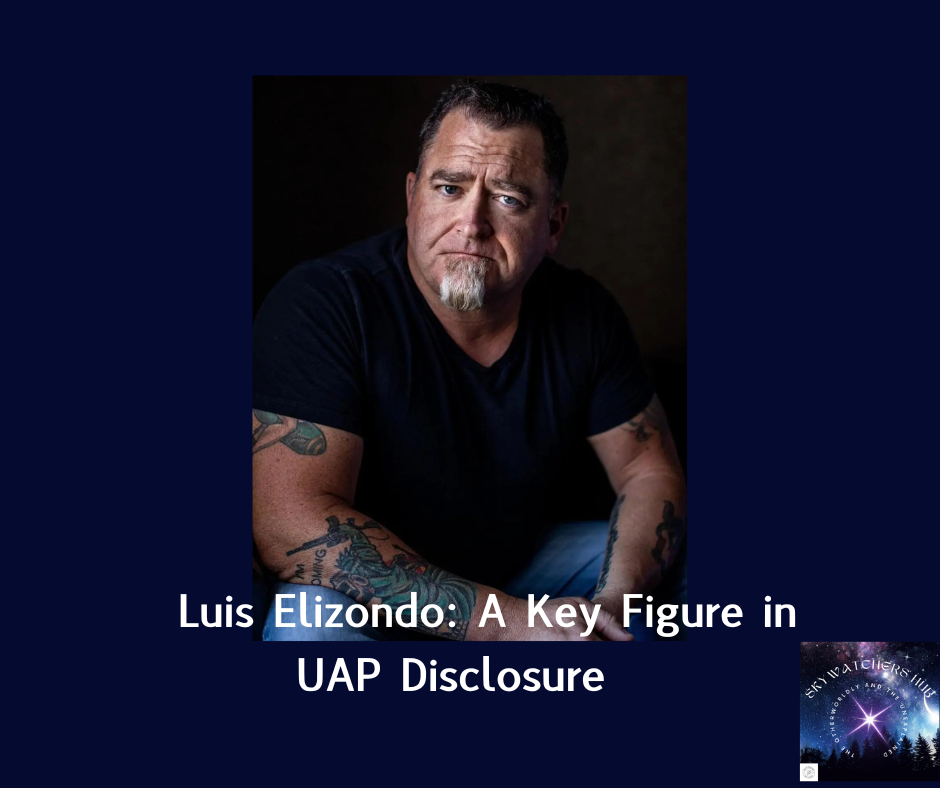Jacob Barber: From U.S. Air Force Veteran to Advocate for UAP Disclosure
- Skywatcher's Hub

- Mar 1
- 5 min read

In the growing movement for UAP (Unidentified Aerial Phenomena) disclosure, there are few voices as passionate and credible as Jacob Barber, a U.S. Air Force veteran whose personal experiences and military career have shaped him into a key advocate for transparency regarding UAPs. Barber’s story is one of dedication to service, a commitment to uncovering the truth, and an unwavering belief that the public deserves to know more about what is happening behind closed doors when it comes to UAP encounters.
Through his journey, Barber has gone from a U.S. Air Force service member to an outspoken figure in the movement to reveal what the government knows about UAPs. But what led him from the disciplined world of military service to the world of UFO and UAP advocacy?
A Military Career Grounded in Duty

Jacob Barber’s military journey began with his enlistment in the U.S. Air Force, where he served with honor and distinction. As a veteran with extensive experience in various capacities, Barber spent much of his career working in aerospace and defense operations. He was trained to be highly disciplined, methodical, and to follow strict protocols as a part of national defense operations. However, like many service members, Barber’s experiences would lead him to see things that challenged the very foundations of what he thought he knew about the military and the world around him.
Barber's time in the Air Force put him in a unique position—working within the defense apparatus of the U.S. military, where he was privy to sensitive operations and advanced technology. While his day-to-day duties largely involved the handling of standard aerospace defense matters, it was the occasional and unexplained encounters with aerial phenomena that began to shift his perspective on what he thought was possible.
The Moment of Revelation

While serving in the Air Force, Barber became aware of the numerous, unexplained UAP incidents that were quietly circulating among military personnel. These phenomena were not the stuff of fringe conspiracy theories or off-the-record rumors. According to Barber, these were real, documented encounters that defied conventional explanation. As someone trained to analyze data and understand military technology, Barber began to pay closer attention to the increasing number of UAP sightings and interactions that military personnel were experiencing.
His firsthand knowledge of these encounters, many of which were never publicly acknowledged, began to raise significant questions about the U.S. government’s involvement with UAPs. What was particularly concerning to Barber was the lack of official acknowledgment or transparency on these incidents. Much like other military personnel who had witnessed unexplained phenomena, Barber began to suspect that there was a deliberate attempt to keep this knowledge hidden from the public, even though these events were happening regularly within the ranks of the U.S. military.
Barber was not alone in his suspicions. There were many others within the military who had observed UAPs, from pilots to ground crew, and yet no one was speaking out. The classified nature of these encounters meant that those who witnessed these phenomena often kept quiet, either out of fear of repercussions or because they had been instructed not to discuss what they had seen.
The Turning Point: Speaking Out

After leaving the Air Force, Barber began to reflect on the UAP incidents he had witnessed and heard about during his service. The more he thought about it, the more he realized that the public deserved to know the truth about these occurrences. He became increasingly frustrated with the ongoing secrecy and lack of transparency surrounding UAPs—especially given how often military personnel, including those in advanced aerospace fields, had reported encounters with these unknown objects.
Determined to make a difference, Barber began to speak out about his experiences, becoming an advocate for UAP disclosure. He believed that the general public and the scientific community were being kept in the dark about these unexplained phenomena, and that it was time for the government to release what it knew.
Barber began sharing his experiences and insights through various platforms, including podcasts, interviews, and conferences. He became a vocal proponent of government transparency on UAPs, calling for the U.S. military and intelligence agencies to release declassified information and to allow independent investigations into these phenomena. His message was clear: UAPs are not just an anomaly, but a serious issue that requires scientific study, governmental accountability, and open public dialogue.
A Call for Scientific and Governmental Accountability

Barber’s advocacy is grounded in a firm belief in scientific inquiry and democratic oversight. He has consistently emphasized that the U.S. government should not only disclose information about UAPs but also allow independent researchers and scientists to study these phenomena in detail. His calls for transparency are not based on sensationalism but rather on a desire to understand what UAPs are and how they may impact national security, technology, and humanity’s understanding of the universe.
In Barber’s view, secrecy surrounding UAPs only fosters misinformation, suspicion, and fear. Instead, he argues, it is essential for the government to step forward and provide clear and verifiable information. As a military veteran, Barber’s perspective is unique. He understands the need for security, but he also understands the importance of public accountability, especially when it comes to something as significant as the potential existence of extraterrestrial life or advanced, unknown technologies.
Barber has also stressed the importance of policy reform and has advocated for the creation of government bodies that would be tasked with the study and disclosure of UAPs. He sees this as a critical step in ensuring that UAPs are not just seen as a military or intelligence issue, but rather as a global phenomenon that demands serious scientific exploration.
Jacob Barber's Legacy in UAP Disclosure

Barber’s story is not just about his personal journey; it is about the larger shift in how UAPs are being treated by both the public and the government. As a U.S. Air Force veteran, Barber offers a credible, grounded voice in a community of individuals who are pushing for a new era of transparency and scientific inquiry into UFOs and UAPs.
Through his advocacy, Barber has become a significant figure in the movement for UAP disclosure, helping to elevate the conversation from sensational tabloid fodder to a serious and well-supported scientific and political discussion. His calls for action have found an increasing audience, as more and more military personnel and government insiders are beginning to come forward with similar stories.
Barber’s legacy in UAP disclosure will likely be defined by his ability to challenge the status quo and to push for a greater understanding of these unexplained phenomena. Whether through his personal testimony, public advocacy, or calls for transparency and scientific study, Jacob Barber’s role in the growing UAP discourse serves as a reminder that the search for the truth, especially when it comes to matters of national and global importance, is worth pursuing—no matter where it leads.
As more and more U.S. veterans, intelligence officials, and military personnel like Barber continue to speak out, the push for UAP disclosure remains a powerful force in reshaping how humanity thinks about our place in the universe and what is being kept hidden from us.

.png)










Comments